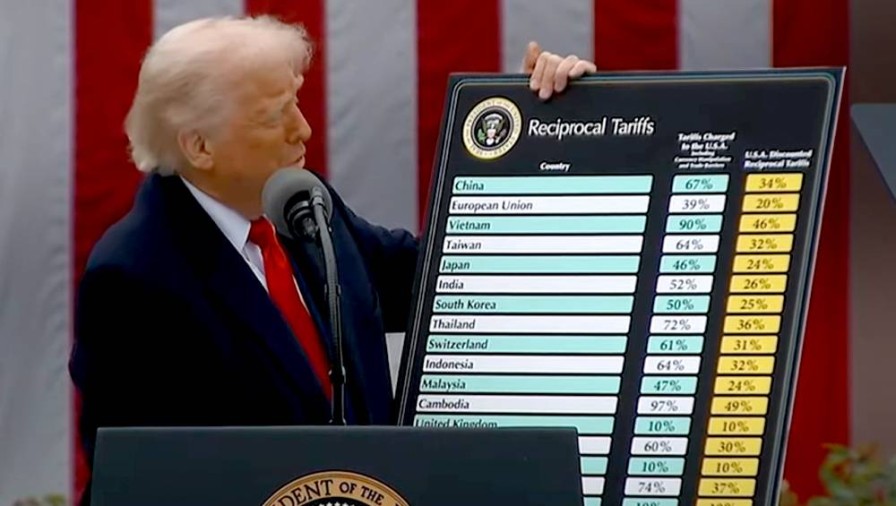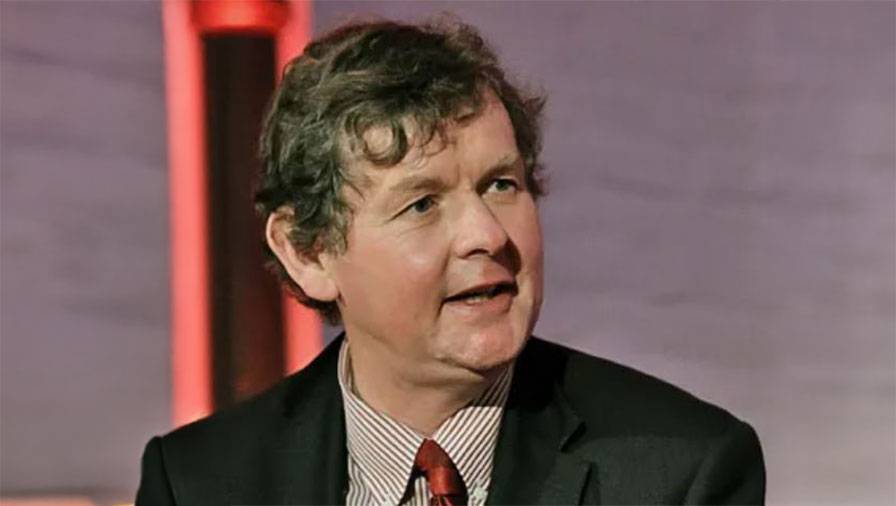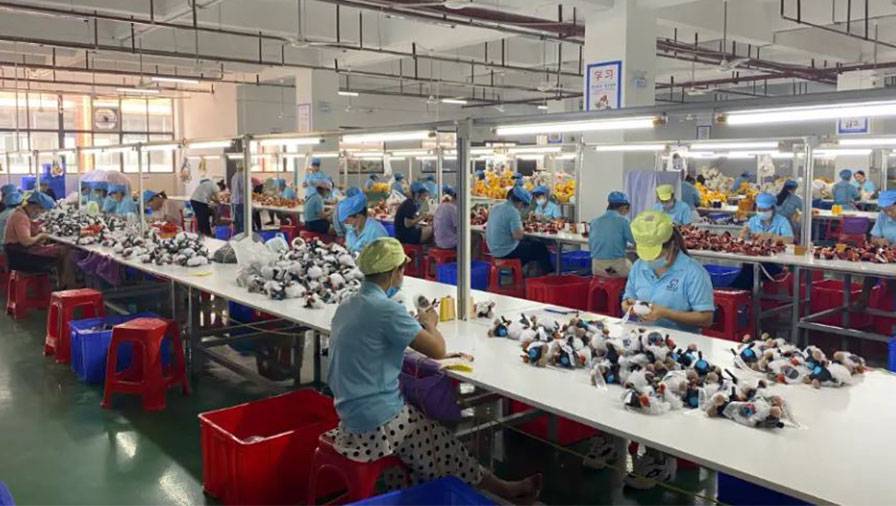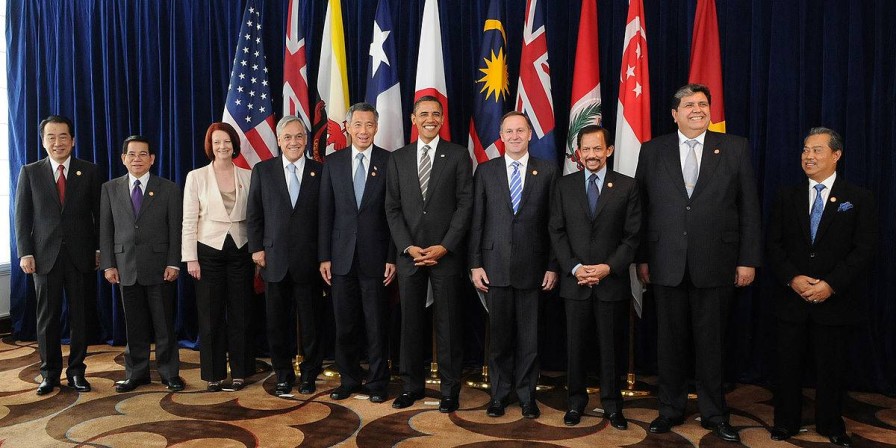The case against Donald Trump’s tariffs
The consequences of upending a world economy based on free trade.
The Economic Consequences of Mr Trump: What the trade war means for the world, by Philip Coggan.
The consequences of upending a world economy based on free trade.
The Economic Consequences of Mr Trump: What the trade war means for the world, by Philip Coggan.
In November 1999, the World Trade Organisation (WTO) was effectively brought to a standstill by protesters opposed to capitalism and globalisation. The ‘Battle in Seattle’ was a rallying call for the left and later memorialised as a movie.
The WTO had 109 country members at the time. It now has 166. Regardless, free trade has remained the bête noire of the left. Opposition to the original Trans-Pacific Partnership (TPP) triggered street marches in New Zealand by elements similar to those in Seattle.
They have since been joined by Donald Trump’s brand of Republicans. His first action on becoming president in 2017 was to sign the US out of the TPP. In 2019, he blocked appointments to the WTO appeals panel, obstructing the dispute settlement process.
According to a study by the WTO, most of the world’s US$33 trillion ($55tr) in trade still abides by the basic rule of non-preferential exchange. But Trump hasn’t let up and has fulfilled the wildest dreams of the anti-free traders.

US President Donald Trump reveals his tariff plans on April 2, 2025.
His obsessive use of tariffs is an attempt to revert to a world before the WTO, its predecessor, the General Agreement on Tariffs and Trade (GATT), and before China became a superpower and the world’s workshop.
He has long viewed China’s membership as a scam, an indication that the WTO doesn’t require all countries to play by the same rules. The latest report by the US trade representative refers to China’s “state-led, non-market approach to the economy and trade”.
A few months ago, Trump accused “globalist elites” of letting “other countries unfairly take our factories, our jobs, and our dreams”. He also cut off funding to the WTO.
This culminated in ‘tariff day’, on April 2, when Trump displayed a chart (photo above) of how tariff-based world trade should look. It shocked most economists and many politicians, not the least of them being Phil Coggan, a former business journalist of the year for his work at the Financial Times and The Economist, where he wrote its Buttonwood and Bartleby columns.
He is author of More: The 10,000 Year Rise of the World Economy (2020), published by The Economist, and has just dashed off The Economic Consequences of Mr Trump, a polemic inspired by John Maynard Keynes’ The Economic Consequences of Mr Churchill.
The latter was published to oppose Winston Churchill’s decision, as Chancellor of the Exchequer, to return Britain to the gold standard applying before World War I, exactly 100 years before Trump’s ‘tariff day’.
Though Churchill’s decision was recommended by the Bank of England and most economists, Keynes was opposed on the grounds that it overvalued the pound, would lead to catastrophic deflation, and increase unemployment.
This was indeed the result and Churchill himself later admitted he agreed with critics who described him as Britain’s worst finance minister. Coggan invokes the Trump tariffs as another of “the greatest economic policy mistakes in history”.

Philip Coggan.
The most important thing is its fundamental misunderstanding of the world trading system. While differing from the deflation at the centre of Churchill’s disastrous decision, which resulted in the General Strike of 1926 and contributed to the Great Depression of the 1930s, Trump’s decisions are likely to have similar consequences.
These are outlined in six punchy chapters covering the history of world trade, the impact of tariffs and taxes, the pros and cons of globalisation, who will be most affected, and the lack of an alternative to trade based on market-based transactions.
As Trump represents a much different breed of politics from those espoused by the leftist anti-free trade crusaders, Coggan has a lot of ground to cover, as well as dealing with myths and misconceptions.
Among these are that trade deficits are only part of the economic picture and cannot be considered in isolation; that tariffs are a tax on consumers and make no sense in global supply chains; the decline in manufacturing jobs is not strictly due to trade practices; and that moving an economy back to low-value manufacturing will do more harm than good to workers.
The uncertainty arising from ad hoc tariffs imposed at a president’s whim is "one of the biggest negative consequences of Mr Trump," Coggan asserts. He quotes from the Jeffries investment bank: “The downside risk of investing in US plants without stable trade agreements is substantial ... [and] can lead to hesitancy in making long-term investments, impacting the growth and stability of the US manufacturing sector.”
While such agreements have been part of Trump’s deals to date, Coggan predicts a range of complications, pointing out labour shortages in some sectors and that shifting production to low-margin activities to avoid tariffs would require US companies to take resources away from their high-margin businesses.

Toy manufacturing is a low-value activity best suited to countries with cheap labour.
These full consequences are yet to be felt in the US economy but perhaps the worst effect is Trump’s dislike of the multilateral trading system itself. Coggan suggests this is based on little more than Trump’s desire not to be constrained in his decision-making. “He would much rather deal bilaterally with other nations, since this increases his leverage …’’
Coggan recognises that Trump is correct in identifying China’s unfair trade practices; that Europe hasn’t paid its fair share in defending the Western world; and that American workers have a legitimate grievance in a long period of sluggish real wage growth.
“But [his] approach to solving these problems is counter-productive, destroying when he could have been building.” An example is the TPP, which was initially seen by President Barack Obama as a bulwark against some of China’s more egregious trading practices.
The trade pact, now known as the CPTPP, has expanded without the US to include the UK and, rather than isolating China, which is seeking admission, it will isolate the US instead. China has long benefitted from its mercantilist policies, and a weakened WTO has failed to discipline or constrain them.
Coggan completed his text on May 31, but subsequent events have not changed the general direction he describes. The bond and stock markets occasionally show some resistance that has forced Trump to retreat from damaging policies, while interest rates and the US dollar send out mixed signals.

Leaders of 10 original members of the Trans-Pacific Partnership in 2010.
The courts have theoretically rejected his tariff regime but who knows where presidential power will finally reach its limit. Coggan does not rule out a market meltdown, paradoxically describing it as the most likely event to rein in the worst of Trump’s economic folly.
“The ongoing reliance on an erratic trade policy – marked by temporary fixes, strategic inconsistency, and persistent unpredictability – continues to undermine long-term economic resilience and US global leadership, while imposing avoidable costs on consumers and businesses alike.”
It doesn’t help that Trump has also attacked other areas of American economic strength, such as defunding scientific research in universities, reducing opportunities for overseas students, and curbing immigrants in areas of skill shortages.
Coggan is unrepentant in his withering critique of policies rooted in 1980s opposition to free trade and a refusal to admit being wrong. “He is smashing a system he doesn’t understand, and he does not know how to replace it.”
This book may not change many minds, as Keynes’ did several decades after his foray, but it is a reminder that history is still a valuable judge of past decisions and that their consequences are not immediately apparent.
The Economic Consequences of Mr Trump: What the trade war means for the world, by Philip Coggan (Profile Books).
Nevil Gibson is a former editor-at-large for NBR.
Sign up to get the latest stories and insights delivered to your inbox – free, every day.